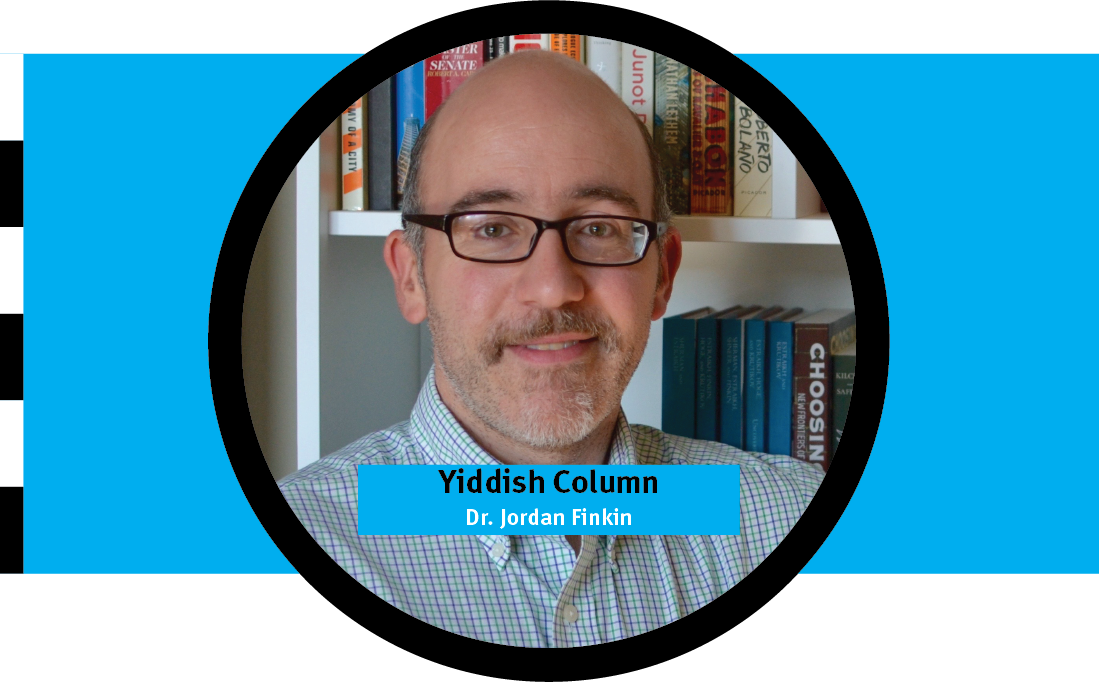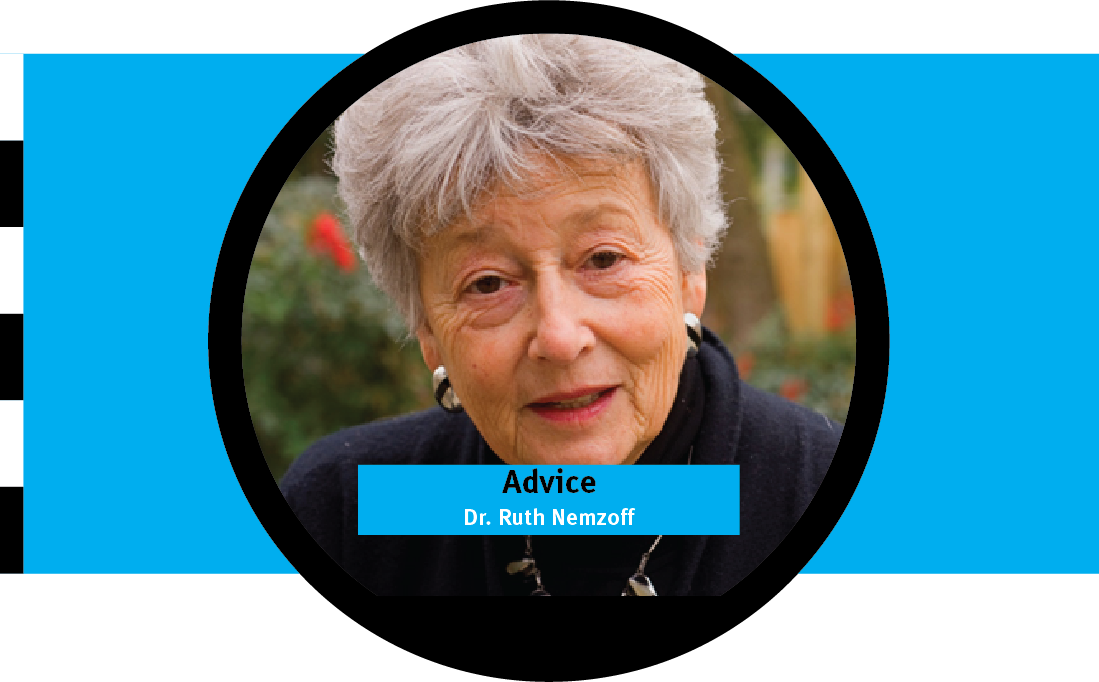September has arrived and with it the start of new semesters everywhere. School and scholarship are ingrained in the patterns of Yiddish culture. So I thought I would take a little time to talk about scholarship-related words in Yiddish.
The first thing to recognize is that traditional Yiddish culture makes a distinction between general or secular knowledge on the one hand, and Jewish knowledge on the other. Much of what follows will deal with the latter. However, to start out, we must acknowledge the quirk of the fundamental verb we will be talking about: “lérnen.” Unlike German, say, with its “lernen” (study, learn) and “lehren” (teach), Yiddish “lérnen” can mean both. (Incidentally, while standard Yiddish has no cognate for the German verb “lehren,” it does have a noun “lérer” as a generic word for teacher.) Given the importance of learning one can understand the following gradations of meaning: “lérnen” or “óyslernen” (to learn, to teach); “ónlernen” (to teach someone a lesson); “óplernen” (to finish studying something, or to learn by imitation or deduction); “avéklernen” (to learn something without difficulty); “dúrkhlernen” (to learn something thoroughly); “áynlernen” (to teach, especially by drilling); and “tsúlernen” (to train someone). The expression “lérnen di bóbe zíngen” (literally, to teach one’s grandmother how to sing) means explaining something to someone that they already know all about. The English equivalent is, if anything, more “picturesque” than the Yiddish: “teaching your grandmother how to suck eggs.”
The concept of “lérnen,” however, comes into fullest view in the context of Jewish learning. If I use the phrase “ikh ken lérnen” (literally, I know how to learn), what I mean is: I know the Talmud. That’s why there is the following partition of meanings for student: “tálmid” (masculine) and “talmíde” (feminine) are the basic words for primary and secondary students; “studént” and “studéntke” indicate university students; and a “lérner” is specifically a Talmud student. (A “vóyllérner” is a particularly good Talmud student.) You can see the differentiation I spoke of earlier. Indeed, where “lérnen” indicates studying more generally and Jewish learning more specifically, “shtudírn” indicates studying a particular subject (usually secular), or the activity of being a university student (e.g., “ikh shtudír” means I’m in college).
It is, however, in the world of Jewish learning, including Talmud study, that Yiddish lexical diversity shines. One can be a “kéner” (expert) in any number of things, but a “kéner in die kléyne óysyes” (literally, an expert in the tiny letters) or a “kéner in the shvártse píntelekh” (literally, an expert in the black dots, i.e. Hebrew Letters) is to be well-versed in Judaism and Jewish texts. Another way of expressing being an expert in something is to use the word “bal” (from Hebrew “ba’al,” meaning master). So, for example, a “bal-ívri” (literally, master of Hebrew) is a scholar of Hebrew language; a “bal-díkek” or “bal-medákdek” is a scholar of grammar, usually Hebrew; a “bal-tánakh” or “bal-tóyre” is a scholar of the Bible; and a “bal-gmóre” is a scholar of the Talmud. A “bal-móyekh” is someone with “brains,” an intellectual or brainiac. But it can also be used a little disparagingly, something like egghead. An exact synonym, though one deriving from the Germanic as opposed to Hebraic, is “kópmentsh” (literally, head-man).
For the real scholar, however, there is an almost inexhaustible supply of words and phrases. There is the “lamdn,” a scholar to be sure, but also one especially versed in the Talmud; the “melúmed”; the “tálmid-khókhem”; the “yedéye-séyfer” (literally, the one who knows [Jewish] books); the “bar-úryen” (man of learning); the “másmid” (the one who is always poring over his books); the “kháref” (keen or acute intellect); the “tsúrve-derabónen” (the one “scorched” by the learning of the rabbis); the “íle” (child Talmud prodigy); the “múfleg” (preëminent scholar); the “óyker-hórim” (literally, the uprooter of mountains); and, at the very pinnacle of them all, the “góen”: the genius. (Though one would do well to remember that “yéder góen hot zayn shigóen” — every genius has his obsession/mania.)
The world of Jewish knowledge is not the only frame of reference for learning in Yiddish. We can speak of the “gelérnter,” who is the knowledgeable person or scholar, just as we can speak of the “visnsháftlekher,” who is the scholar, academic, or scientist. There is also the “gebíldeter,” namely the educated or cultivated person. This derives from the German concept of “Bildung” — the mass of intellectual, social, moral, and spiritual development achieved through a lifetime of education and self-cultivation. Finally, there is the unusual word “palistránt,” which has a similar meaning, that is, an educated person. This word comes from Polish for someone called to the bar, namely, a lawyer. Ultimately, the word derives from the Palaestra, the arena in ancient Greco-Roman communities for teaching and practicing wrestling (and which we also find, for example, in Cicero, meaning exercises in rhetoric, or a school of rhetoric). In that way, it shares a semantic range with the concept of the Gymnasium.
The final word I’d like to discuss deserves a lot more attention, but for the moment I’ll be brief. From the Hebrew, the word “khókhem” means a scholar, sage, or wise person. But it can also be used ironically to mean a fool. The “Khélemer khakhómim,” the so-called wise men of Chelm, are a case in point. And in a delicious move, it is with that meaning that Yiddish returned the word—now in its Polish-Yiddish pronunciation, “khúkhem” — to Hebrew. So in modern Hebrew “chakhám” (wise man) exists right alongside “chúkhem” (fool). In a similar vein, we encounter a “lezhánke polítiker.” A “lezhánke” is a couch, or more specifically, an annex to a stove which was used as a bed or a warm place to sit. So in their dictionary, Solon Beinfeld and Harry Bochner pose the inspired translation for “lezhánke polítiker”: “cracker-barrel politician.” Yet there is the correlated mock-Hebraizing phrase “khákhme ha-lezhánke” (literally, wise men of the lezhánke). These are the old guys sitting on the lezhánke in the synagogue, kibitzing idly about such things as politics, current events, etc.
This brings us to a final bit of folk wisdom. Yiddish culture’s inordinate valorization of erudition fairly begs for satirical deflation. Typical of the attitude toward the scholar we find: “ful in képele, pust in tépele” (literally, full in the head, empty in the pot). That is, just because you’re brilliant, doesn’t mean you know how to earn a living.
With that I wish you both full pots and curious minds. And as always, “léyent gezúnterhéyt” — read it in good health.
Please send Yiddish questions to: yiddishcolumn@americanisraelite.com.





